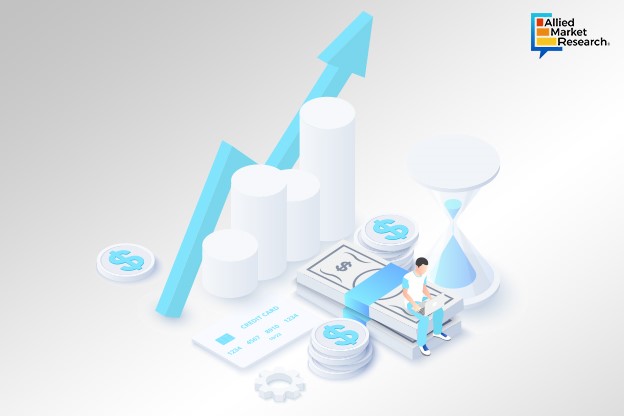How Can Autonomous Finance Help Your Fintech Company Compete with Multinational Giants?

20 Feb
2024
Highlights:
- Introduction
- Role of AI and ML in developing automated financial solutions
- How autonomous finance helps in improving efficiency and accuracy
- Innovative product launches in the industry
Autonomous finance can be defined as the use of advanced technologies such as machine learning and Artificial Intelligence (AI) for performing complex financial operations. Primarily, it involves the use of big data, algorithms, and data analytics to automate transactions and offer personalized investment strategies. With the help of these technologies, individuals can perform several tasks such as investment planning and budgeting on their own without any need for intermediaries. Hence, autonomous finance is sometimes also considered part of decentralized finance (DeFi).
Revolutionizing the financial sector with the help of machine learning
The use of emerging technologies for financial management is the basis of autonomous finance. Innovations such as machine learning (ML) are increasingly being used to automate financial tasks. For instance, ML enhances the quality of monetary transactions by taking into account historical data which reflects the spending patterns and financial behavior of the individual. Along with this, it also analyzes the current market conditions and takes action considering all these factors. Artificial Intelligence (AI) can further refine these financial actions by predicting the market scenario and processing large amounts of data quickly.
Another development in the financial sector is the use of Natural Language Processing (NLP) for improving the intuitiveness and convenience of financial tasks. NLP is a type of machine learning that focuses on comprehending and interpreting human language. The integration of this innovative technology in monetary systems helps the system interact with the customers in a much better manner. Hence, modern financial institutions have started developing chatbots and voice commands using NLP technology.
How can autonomous finance help in achieving higher accuracy and process efficiency
In recent times, banks and financial institutions have been incorporating AI-driven financial solutions to improve their operational efficiency and accuracy. Owing to the high rate of adoption, the banks segment of the autonomous finance industry is expected to garner a revenue of $25,259.32 million by 2032. On the other hand, the financial institutions segment is set to amass a sum of $23,716.82 million in the 2023-2032 period.
A trend that has been witnessed in banks is that they are gradually shifting towards robotic process automation to perform repetitive financial tasks like invoice processing. Moreover, emerging technologies have also enhanced the ability of banks to manage risk-bearing assets, thus improving their relationship with their clients. Machine learning and artificial intelligence have also improved the accuracy of accounting tasks significantly. Furthermore, these innovations have simplified the regulatory compliance procedures for banks and financial institutions.
Another important development due to the use of advanced technologies is the rise of roboadvisors. Roboadvisors are now widely deployed by banks and financial institutions to help individual customers manage their investment portfolios and offer personalized financial advice.
Proactive support to the industry from leading fintech companies
In the past few years, leading fintech companies have invested heavily in developing automated finance solutions. Some financial technology companies have released their own products and platforms, thus establishing their dominance in the industry. For instance, in February 2023, HighRadius, a leading automated finance solutions developer, announced the launch of LiveCube- A No Code Platform. Designed specifically for treasury and accounting departments in financial institutions, LiveCube helps bank professionals to develop applications for performing various financial tasks like accruals and prioritization of collection worklists. The company released a statement saying that the platform will help accountants to perform these operations without the help of IT departments, thus saving time and effort.
Similarly, in August 2023, Vic.ai, a major AI-powered automated finance platform, announced the launch of Vic.ai Payments. The company released a press statement after the launch saying that Vic.ai Payments will act as an end-to-end payment platform for Account Payable teams. The platform was opened for US users and will streamline payments, thereby assisting in upgrading cash flow standards.
To conclude, automated financial solutions are gradually improving the financial literacy of the common populace. Moreover, they are also helping banks and financial institutions to improve their financial operations and manage their assets and liabilities in a better way.
To gain a better understanding of the competitive landscape of the industry, talk to our experts today!

Koyel Ghosh
Author’s Bio- Koyel Ghosh is a blogger with a strong passion and enjoys writing in miscellaneous domains, as she believes it lets her explore a wide variety of niches. She has an innate interest in creativity and enjoys experimenting with different writing styles. A writer who never stops imagining, she has been serving the corporate industry for the last five years.
Avenue: Entire Library membership of Allied Market Research Reports at your disposal
- Avenue is an innovative subscription-based online report database.
- Avail an online access to the entire library of syndicated reports on more than 2,000 niche industries and company profiles on more than 12,000 firms across 11 domains.
- A cost-effective model tailored for entrepreneurs, investors, and students & researchers at universities.
- Request customizations, suggest new reports, and avail analyst support as per your requirements.
- Get an access to the library of reports at any time from any device and anywhere.
Related Post
-
How are Submarine Cables Transforming Global Connectivity with Enhanced User Experience?
-
Endoscopy Procedures: Transformations in Techniques and Applications
-
AI-Powered Video Analytics: How the Product Actually Works for enterprises
-
Painting Robots: Transforming Precision Coating and Creative Applications
-
Innovations in Pharmacovigilance Systems Advancing Patient Safety
-
Understanding Edge Security: Keeping Data Safe Near the Source
-
Exploring the Use and Advancements of 3D Laser Scanners in Professional Applications
-
Reinforcing Industrial Controls with Smarter Tools and Training








